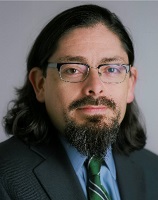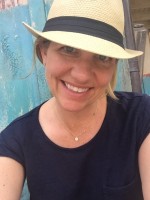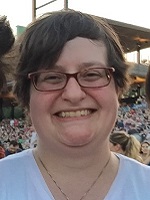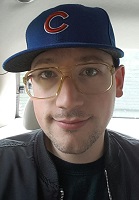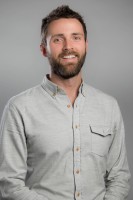Roger Valdez '90
Director, Smart Growth Seattle
“Throughout my career in public policy, I have relied on my study of philosophy in four important ways. First, I learned how to argue in philosophy – and I don’t mean just shouting louder than someone on the other side. Philosophy trains the mind to organize ideas and find flaws, inconsistencies, and errors in the other sides arguments. Second, I started to learn how to write in my philosophy classes. Many of the things I learned in my years in the program formed the foundation for the writing I do today. Third, the history of ideas matters; who’d have thought that I’d be quoting from Marx’s Critique of the Gotha Program (“History repeats itself, first as tragedy, then as farce”) on the local radio station more than 25 years after the collapse of the Soviet Union (…) Finally, my philosophy education, and more broadly my liberal arts education, has given me a rich context in ideas and culture from which to draw when both understanding where our current world came from and where it might be going.”
Profile in The Stranger | Profile in Seattle Met Magazine | Profile in the Seattle Times | Contributions in Forbes
|
|
Jessica Berry '94
Associate Professor of Philosophy, Georgia State University
“… a philosophy of mind course I took was a real eye-opener for me. The problem of consciousness, the nature of mental states, the relationship between objects of perception and our representations of them, and worries about whether we have the sort of self-transparency that psychology (clinical psychology, at any rate) seemed to presuppose I just found totally absorbing. The questions about perception and self-knowledge led me to think about problems of knowledge more generally, and ultimately to an interest in epistemology and an openness to philosophical skepticism that still guides a lot of my work.”
Learn more about Jessica's work | Interview with 3:AM Magazine | Talk at Puget Sound |
Jessica's Book Nietzsche and the Ancient Skeptical Tradition
|
|
Holli Fillbach Simcoe ’95
Assistant General Counsel at Huron Consulting Group
“It’s hard to put a finger on exactly how philosophy studies have contributed to my career. It certainly helps me to be a critical thinker but also to be open-minded and creative. I usually have more than one solution to a problem which most people find refreshing(…) in our many class discussions, I often took the minority viewpoint for the sake of argument. For example, if you were stuck on a boat in the ocean would you fend for yourself or cooperate for the greater good. I found it more interesting to consider fending for myself than the more “sane” concept of working together. This “thinking skill” or perhaps, “objectivity,” allows me to consider many angles of an issue or problem. I tend not to dismiss something that may seem less rational than other solutions.”
|
|
Sarah Jacobson ’05
Transit Control Supervisor, Minneapolis Metro Transit
“My philosophy degree helped me transition into management positions easily, since I have superior critical thinking and problem solving skills and excellent written and oral communication. My career didn't turn out as planned, but even so, I think my degree set me up to succeed.”
|
|
Tim Linnemann '06
Philosophy Instructor, Bellevue College
"I am particular passionate about bringing the world of philosophy to students of ALL backgrounds and ability; to inspire them to challenge themselves, but also to help them to see themselves as having a place in a discussion that is not properly relegated only to the “geniuses” (while still respecting the contributions of genius!). My major teaching interests are in critical reasoning and ethics - two parts of our discipline that I believe are the greatest gifts we have to offer the broader academic landscape and just humanity at large (beyond the boundaries of the profession).
Because it is something I consider my philosophical education to have helped me greatly with, I might also mention my service on a “Steering Team” (leadership board) for a local church in Wallingford (Gift of Grace Lutheran). The church is a very small congregation with a special emphasis in our ministry to bridging social divides (of especially class and sexual orientation). Community building is a challenging task in all circumstances, but the unique challenges of this leadership role has provoked me to draw deeply on the skills philosophy has taught me about framing debate and disagreement in a way where we can productively explore the controversies as cooperative truth-seekers. Such skills are beyond value!"
|
|
Brenden Goetz '07
Data Manager, University of Colorado at Denver IT Department
“Studying philosophy was definitely a fantastic decision! Learning to dissect arguments and lines of reasoning, ask meaningful questions, and communicate clearly are skills I developed in school and use all the time. And a general curiosity for getting to the root of problems has served me well, too.”
|
|
